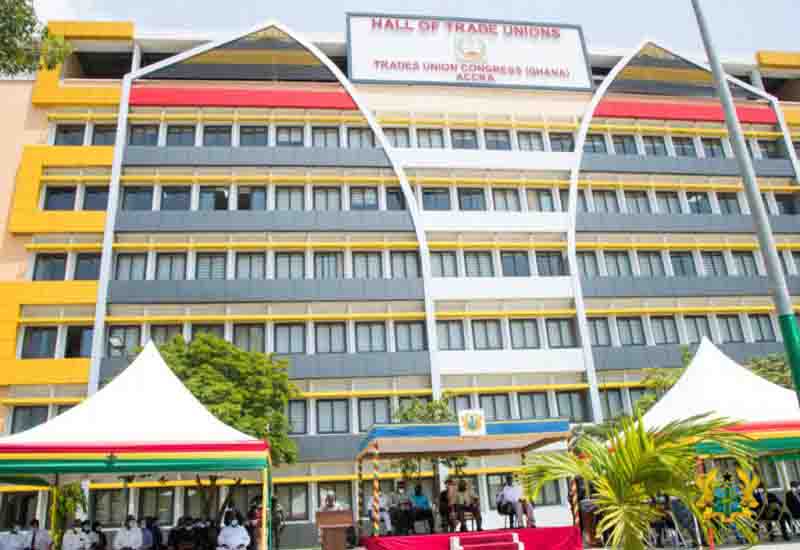The Trades Union Congress (TUC), mouthpiece of worker unions in the country , is asking the Government to suspend all taxes and levies on petroleum products.
This will help mitigate the current economic hardship facing Ghanaians amid recent hikes in fuel prices, food commodities, and transport fares as well as depreciation of the cedi and its attendant inflationary pressures, it said.
Since the beginning of 2022, fuel prices have increased cumulatively by 54 per cent, with transport fares having increased by 15 per cent. Data by the Bank of Ghana had shown that the cedi so far in 2022 had depreciated by about 14.6 per cent to the US dollar.
To this end, the Union asked the government to allow the suspension to be in force until the international prices of crude oil stabilised, and the depreciation of the local currency (the Cedi) observed some improvement.
TUC was of the view that such a measure would bring down the prices of petrol, diesel, Liquefied Petroleum Gas (LPG) and kerosene to an average of 15 per cent, resulting in a stabilisation of essential items including food.
The proposal by the Union came ahead of the Government’s announcement of key measures and reliefs in easing current economic hardship in the country on Thursday by the Finance Minister, Ken Ofori-Atta.
The Secretary General of TUC, Dr Anthony Yaw Baah, in their proposal to the Finance Ministry and Energy Ministry said: “We propose that Government must immediately suspend all taxes and levies on petrol, diesel, and LPG.”
He added that: “More importantly, suspending taxes and levies on these fuel products in these challenging times will demonstrate to Ghanaians that our government is sensitive to the plight of the people of Ghana.”
Dr Baah said the time had come for the government to adopt a policy to ensure domestic refinery of petroleum, noting that such a measure would “insulate fuel prices from the vagaries of the exchange rate.”
He said: “Government should also be serious about reviving the Tema Oil Refinery (TOR) to refine crude oil for the domestic market. Refining domestically-produced crude oil in Ghana can even strengthen the cedi, among other advantages.”
The TUC Secretary General said the rising fuel prices had significantly impacted living standards, eroded values of incomes of people especially for workers on their fixed salaries, and pushed many more Ghanaians into poverty.
He, therefore urged the government to institute measures to, “address the situation without further delay, otherwise, many more Ghanaians will be pushed into destitution.”
The President, Nana Addo Dankwa Akufo-Addo, had admitted the current economic hardship in the country, and indicated that the government would adopt the necessary measures to turn the economy around.
When members of the Council of State conferred with him on Tuesday, he said the country was going through a difficult time and that called for difficult decisions, noting that “it is no secret that our economy is going through difficult times.”
He added that: “It is also no secret that we are not alone in this exercise. Many of the phenomena that we are facing are apparent in many other parts of the world as well. But that doesn’t mean that the government is impotent in trying to find solutions.”
Ashantibiz




